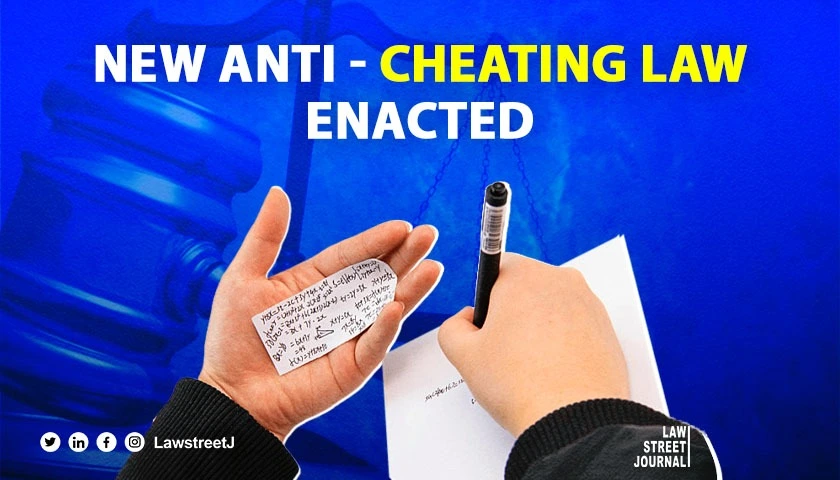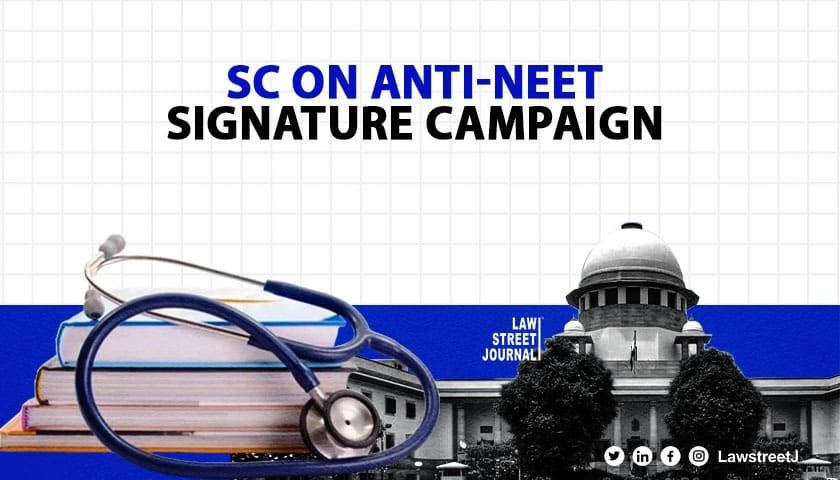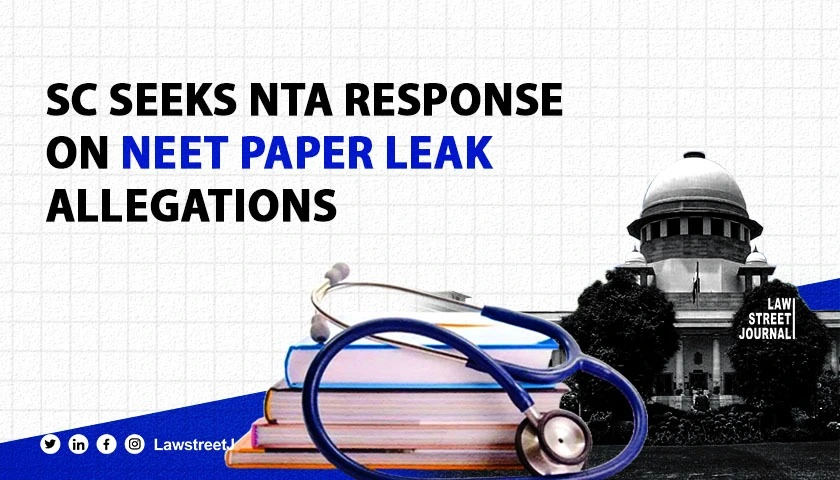New Delhi: The Union Education Ministrys decision to scrap the UGC-NET 2024 examination conducted on June 18 across 317 cities, as well as the alleged irregularities in the NEET(UG) 2024 conducted by the National Testing Agency (NTA), has brought into focus the newly enacted Public Examinations (Prevention of Unfair Means) Act, 2024, by the Central Government.
The idea behind this Act was to prevent the use of unfair means in public examinations, which included competitive examinations conducted by authorities such as the Union Public Service Commission, the Staff Selection Commission, the Railway Recruitment Boards, the National Testing Agency (NTA), the Institute of Banking Personnel Selection, and the Union government departments and their attached offices for recruitment.
The Public Examinations (Prevention of Unfair Means) Act, 2024, was hailed as landmark legislation aimed at curbing malpractices in public examinations across the country. The Act defines unfair means comprehensively, covering a wide range of activities constituting unfair practices. One of the key provisions is the list of specific actions that amount to using unfair means, such as leakage of question papers or answer keys, accessing question papers without authority, tampering with answer sheets, providing unauthorized assistance to candidates during exams, and tampering with documents related to candidate shortlisting or merit lists.
The Act also considers the creation of fake websites, issuance of fake admit cards or offer letters, and tampering with computer systems or networks used for examinations as punishable offenses under the new law.
In terms of punishment, the Act takes a strict stance, making all offenses cognizable, non-bailable, and non-compoundable. This means that arrests can be made without a warrant, and bail will not be a matter of right but subject to the discretion of the courts. The punishments prescribed are severe, with imprisonment ranging from three to five years and fines of up to Rs 10 lakh for individuals found guilty of using unfair means or committing offenses. In cases where the convict fails to pay the fine, additional imprisonment can be imposed.
Also Read - Act fairly, admit if any mistake conducted in NEET UG, SC tells NTA
The Act also addresses organized crime related to unfair means and other offenses under this act, defining it as unlawful activities by groups colluding in a conspiracy for wrongful gain. In such cases, the punishment is even harsher, with imprisonment ranging from five to ten years and a minimum fine of Rs 1 crore. Service providers engaged in providing computer resources or materials for the conduct of examinations are also held accountable under the Act, facing fines of up to Rs 1 crore and other penalties if found complicit in unfair practices.
The major cause of concern that calls for urgent action is that paper leaks and irregularities during the conduction of any public examination create an environment full of uncertainties and hostilities for candidates who have been preparing for that particular exam for a long time. These malpractices also compromise the quality and sanctity of examinations for prestigious institutions, thereby bringing a bad name to the nation.
Additionally, cheating in these exams undermines the principles of meritocracy and equal opportunities, which are essential for fostering social mobility and ensuring fairness in society. It also perpetuates inequalities by favoring those who can afford to pay for leaked exam papers or engage in fraudulent activities, while disadvantaging those who rely on their hard work and merit to succeed.
Therefore, strict implementation of the law is crucial to prevent future irregularities in examinations and to fulfill the objective of the law in bringing greater transparency, fairness, and credibility to public examination systems. This reassures youth that their sincere and genuine efforts will be fairly rewarded, ensuring their future is secure. Hence, the acts of cheating in examinations must be dealt with a stern hand, as their effects are not limited to an individual but impact society as a whole.




![Calcutta High Court Seeks Response from NTA on Alleged Irregularities in NEET (UG) 2024 [Read Order]](/secure/uploads/2024/06/lj_5003_b32496f2-2569-41b3-b69f-13dc627a53b9.webp)
.webp)







